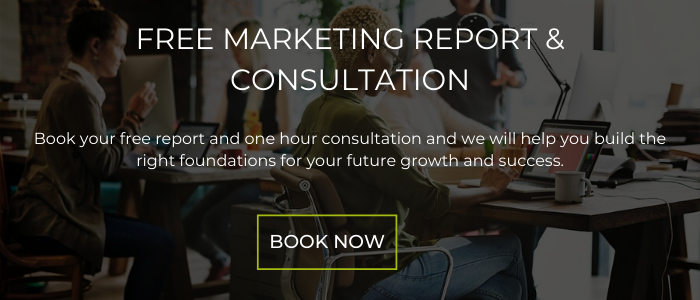On-Page SEO Strategies for Recruitment Agencies

In today’s ever-evolving job market, recruitment agencies face a number of unique challenges when it comes to establishing a prominent and influential presence online.
The fact is that competition for top-tier talent and valuable clients is fierce, which means it’s vital for recruitment agencies to embrace digital marketing and smart SEO to get ahead.
However, with so many different aspects to it, on-page SEO remains a mystery for many – which is why we’ve put together this blog for expert help and advice on all things on-page SEO.
Ready to dominate the search engines? Let’s dive in...
What is on-page SEO?
First things first, what is on-page SEO, anyway? Well, on-page SEO refers to the optimisation of individual web pages to improve their search engine rankings and attract more organic traffic.
Unlike off-page SEO, which focuses on external factors such as backlinks and social signals, on-page SEO involves optimising the content and elements directly within a web page to appeal to search engines and users alike.
6 secrets to on-page SEO success
1. Choose your keywords
First things first, keyword research is a fundamental on-page SEO practice and basically creates the building blocks on which to create your entire SEO strategy. No pressure, then!
Luckily, though, help is at hand. Tools such as Google Keyword Planner, SEMrush, Ahrefs, and Moz Keyword Explorer can help you conduct in depth keyword research so you can understand the total search market and strategically target the correct search terms.
Once you’ve identified the relevant keywords and phrases that your target audience is likely to use in search queries, it’s time to incorporate them into various elements of your web pages, including the title, headings, body content, and meta tags.
Title Tags
The title tag is one of the most critical on-page SEO elements. It should accurately reflect the content of the page and include the primary keyword.
Header Tags
Header tags (H1, H2, H3, etc.) help structure your content and make it more readable. They also provide clues to search engines about the hierarchy of your content. Basically, by properly using header tags, you can improve both user experience and SEO.
2. Create high quality content
Content is king in SEO, which means that creating informative, engaging, and valuable content is essential for on-page SEO success.
Your content should address the needs and questions of your audience, whether they are job seekers or employers.
In addition to blog posts and service pages, consider the following content types to enhance your on-page SEO efforts for a recruitment agency:
Location Pages
Location-specific pages are crucial if you’re targeting candidates and employers in different regions.
If your agency operates in multiple cities, for example, you can create individual pages for each location, such as ‘IT recruitment agency Leeds’. These pages can include information about the local job market, industry insights, and a list of current job openings in that area.
By optimising these pages for relevant location-based keywords, you can attract candidates and clients searching for opportunities in specific regions.
Job Category or Industry Pages
Next up, job category pages allow you to categorise job listings and provide a user-friendly experience for job seekers.
Create job category pages for each industry, such as ‘Healthcare Jobs’, ‘Tech Jobs,’ or ‘Finance and Accounting Jobs’. These pages should include an overview of the industry, key trends, and a selection of relevant job listings.
In addition, you should also create pages for every sector and sub-sector you specialise in and link them from your home page footer or create a sector homepage to route from.
Optimising these pages ensures that job seekers can easily find opportunities in their desired field, while also improving your SEO for industry-specific keywords.
You can then drill down further into specific job roles and produce deep content demonstrating your expertise and becoming the authority within your space.
Job Type Pages
Job type pages can be used to categorise and showcase your expertise in different job categories or industries.
For example, if your agency specialises in executive-level placements creating job type pages like ‘Executive Jobs for IT’, ‘CTO jobs’, or ‘Senior Management Jobs’, provides a go-to resource for executive job seekers and those seeking top-tier talent.
Each page should provide detailed information about the types of positions you handle, the qualifications required, and the benefits of working with your agency for such roles.
Guides
It’s not just about web pages, though. Creating helpful content such as educational guides is a great way to capture organic traffic through informational searches.
You could create comprehensive guides related to job searching, career development, or hiring practices.
So, if your keyword research reveals a high search volume for ‘Interview Tips for IT role,’ you could develop a detailed guide on ‘Mastering the Interview Process’ which includes tips, sample questions, and strategies to help job seekers smash their next interview.
Salary Research
Let’s face it, money talks - which is why salary research is such a critical aspect of the job search process for both candidates and employers.
By creating salary reports that focus on your specialisms, you can establish youragency as a trusted source within your sector.
Be sure to include information about average salaries, factors that can affect compensation, and tips for negotiating better offers.
3. Meta Descriptions
Another essential component to on-page SEO is meta descriptions. Meta descriptions are concise summaries of your web page’s content that appear in search engine results just below the title.
While they don’t directly influence your page’s rankings, well-crafted meta descriptions play a crucial role in attracting users to click on your link, ultimately driving organic traffic.
Here’s how to optimise meta descriptions for your recruitment agency’s website:
Include Target Keywords
Incorporate your target keywords naturally into the meta description. For example, if you’re targeting ‘IT job openings in London,’ your meta description might start with something like, ‘Explore the latest IT job openings in the thriving tech hub of London.’
Make it Compelling and Concise
Meta descriptions should be concise - typically around 150-160 characters - and deliver a compelling message that encourages users to click. Highlight what sets your agency apart. For instance, ‘Connecting top tech talent with London’s leading companies.’
Solve User Queries
This is where you address the user’s intent. For example, if your page provides tips for job seekers, mention how your content can help them, such as, ‘Discover expert job search tips to land your dream role.’
Unique Descriptions
Avoid using duplicate meta descriptions across multiple pages. Each page should have a unique description that accurately represents its content.
Call to Action (CTA)
Include a clear call to action, such as ‘Explore Now,’ ‘Learn More,’ or ‘Get Started.’ Encouraging action can increase click-through rates.
4. URL Structure
A clean and organised URL structure improves both user experience and search, so it’s super important to create SEO-friendly URLs that are concise, descriptive, and contain relevant keywords when appropriate. Here are some key things to remember:
Simple is Best
Avoid long strings of numbers or random characters. A clean URL like www. recruitmentagency.com/tips-for-IT-jobseekers is preferred over something like www. recruitmentagency.com/page12345.

Include Keywords
Whenever possible, include relevant keywords in your URLs. This reinforces the content’s topic to search engines.
Avoid Special Characters
Eliminate unnecessary special characters, symbols, or spaces in your URLs. Use hyphens to separate words for readability (e.g., ‘job-search-tips’).
5. Internal Linking
Internal linking is another crucial aspect of on-page SEO that serves multiple purposes.
Strategically linking to other relevant pages within your website improves user experience, distributes link authority, and helps search engines understand the structure and importance of your content.
Some best practices for effective internal linking include:
Use Descriptive Anchor Text
Anchor text should be descriptive and provide users and search engines with context about the linked page. Avoid generic phrases like ‘click here’ or ‘read more.’
Prioritise Relevance
Ensure that the internal links are contextually relevant to the content they appear in; links should guide users to related topics or provide additional information.
Avoid Overloading with Links
While internal linking is important, make sure you avoid excessive linking within a single piece of content and instead focus on quality and relevance rather than quantity.
Deep Linking
Explore opportunities for deep linking, which means linking to specific pages or posts deeper within your site. This encourages users to explore more of your content and helps search engines discover and index those pages.
Consistent Site Navigation
Evaluate your website’s navigation structure to ensure that users can easily find related content. Consider implementing a ‘related articles’ or ‘recommended jobs’ section at the end of blog posts or job listings.
6. Image Optimisation
Finally, to boost your recruitment agency’s SEO, effective image optimisation is essential. When adding images to your web pages, we’d recommend following these practices:
Descriptive File Names
Instead of generic names like ‘image123.jpg,’ use descriptive and keyword-rich file names. For instance, name an image featuring Recruitment IT professionals ‘Recruitment-IT-professionals-in-office.jpg.’ This helps search engines understand the image’s context.
Compression
Large images can slow down page load times, affecting user experience and SEO. Utilise image compression tools such as TinyPNG and Compressor.io to reduce file sizes while preserving quality.
Alt Text
You should also include informative alt text for each image and be sure to provide context and relevant keywords. For example, for an image of healthcare professionals, use alt text like ‘Diverse healthcare team in a clinic.’
Expert on-page SEO support with Angelfish Marketing
Need further help and advice on all things on-page SEO? If you’re looking for expert guidance and assistance in enhancing your recruitment agency’s online presence through SEO, you’ve come to the right place.
At Angelfish, our team of digital marketing pros specialise in SEO strategies tailored to the recruitment industry.
So, whether you need help with keyword research, content optimisation, or a comprehensive SEO audit, we have the expertise to elevate your agency’s visibility and drive more qualified traffic.
If you’d like to learn more about how we can help, contact our team today for a chat. Alternatively, check out our ultimate guide to SEO for recruitment agencies here where we explore the themes above in even more detail.

Ready to Unlock AI SEO for Your Business?
AI SEO isn’t coming — it’s already here. Capture high-intent traffic and build sustainable pipeline growth.
Get Your Free Audit


